During the Covid-19 Pandemic, Avid Collectors Find Joy in Their Prized Possessions
At home with their collectibles, many people are expanding, shrinking or reorganizing their treasure troves
/https://tf-cmsv2-smithsonianmag-media.s3.amazonaws.com/filer/c8/ef/c8ef6aed-f1e6-402f-88eb-1e2411854e5f/comic_books.jpg)
A few weeks ago, I masked up and visited an estate sale near my home outside of Austin, Texas. As soon as I walked into the living room, I discovered that the homeowner had collected a veritable pigsty. Ceramic pics, pig door stoppers, ashtrays in the shape of pigs. Tables and shelves overflowed with piglet figurines. A ceramic pig stood next to an easel, wearing a beret and holding a paint palette.
To an outsider, this woman’s collection might seem extreme, but I imagine that each pig, and the story of how it came to her, probably brought her many moments of joy over the years. Amassing a collection can become a transcendent experience for some, one that non-collectors might not understand.
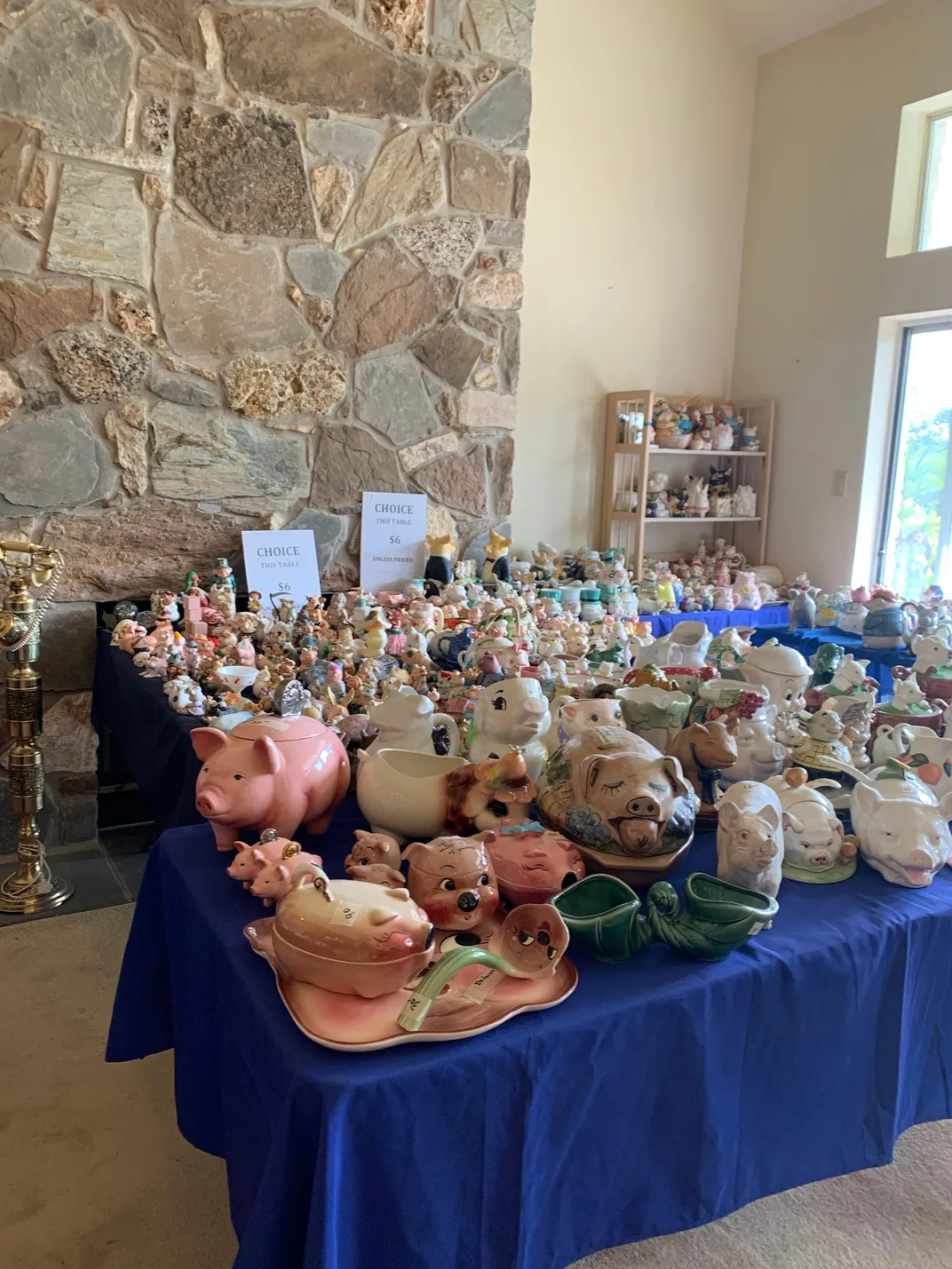
During the ongoing Covid-19 pandemic, hobbies like collecting can bring a bounty of joy amidst so much uncertainty. Many Americans have spent the past months stocking up on jigsaw puzzles or brewing sourdough starters to fill the time. For many longtime collectors, the year has given them the opportunity to lean into their passions, adding comic books or model cars to their shelves, or taking stock of what they already own and can do without, and purging some of their pieces, flooding the market with coveted toys or books or antiques for the next collector to buy. According to multiple collectors, the volume of pop culture and antique items popping up online during the pandemic has made it the time to fill in any holes in their collections.
“I just surpassed 2,000 unique Pez dispensers during the pandemic,” says Junichi P. Semitsu, an appellate attorney and mom in Orange County, California. She started collecting Pez dispensers as a middle-schooler in 1987. “I bought a Speedy Gonzalez dispenser and never stopped,” she says.
Working from home during the pandemic has given her ample time to sit with her 2,000 Pez, and notice gaps in her collection. “I cannot help but obsess,” she says. “Wait, how do I have a crystal C-3P0 without a crystal R2-D2?”
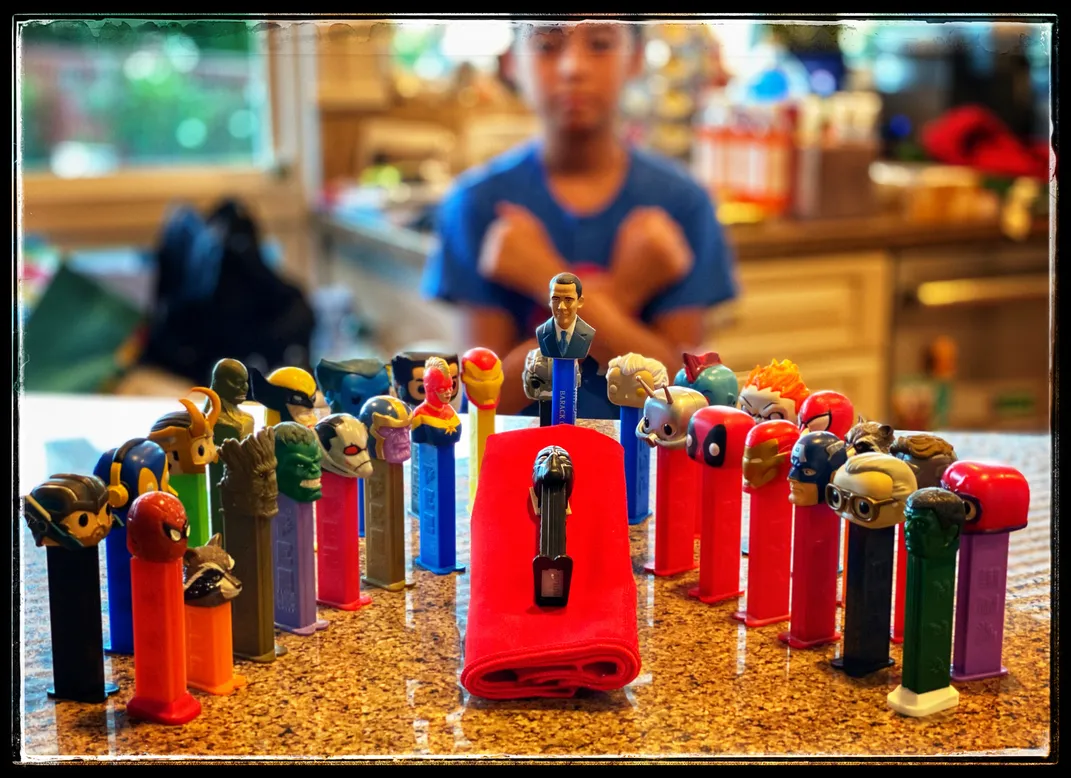
When Black Panther actor Chadwick Bozeman died in August, Semitsu got inspired to pull out her Marvel character Pez dispensers so she and her sons could stage a funeral for Black Panther. Hey, we all need to fill our long pandemic days somehow, right? She said the Avengers wake caused her to rethink how she was grouping her Justice League dispensers, and “an epic reorganization was born.”
“In addition to feeding my nostalgia, Pez dispensers represent diversity to me,” says Semitsu. “Now more than ever, they remind me of simpler times. As we Americans seem to have become increasingly polarized and self-segregated in our own bubbles, my Pez collection—as silly as it may seem—reminds me of the benefits that flow from diversity and, specifically, the value of not drawing too many lines around myself. In my cabinet, every former U.S. president [the Pezidents] is just a couple of feet away from NASCAR drivers, Hobbits, the band Kiss and Paw Patrol. So not only does Pez reflect the growing diversity of pop culture, it bridges gaps.”
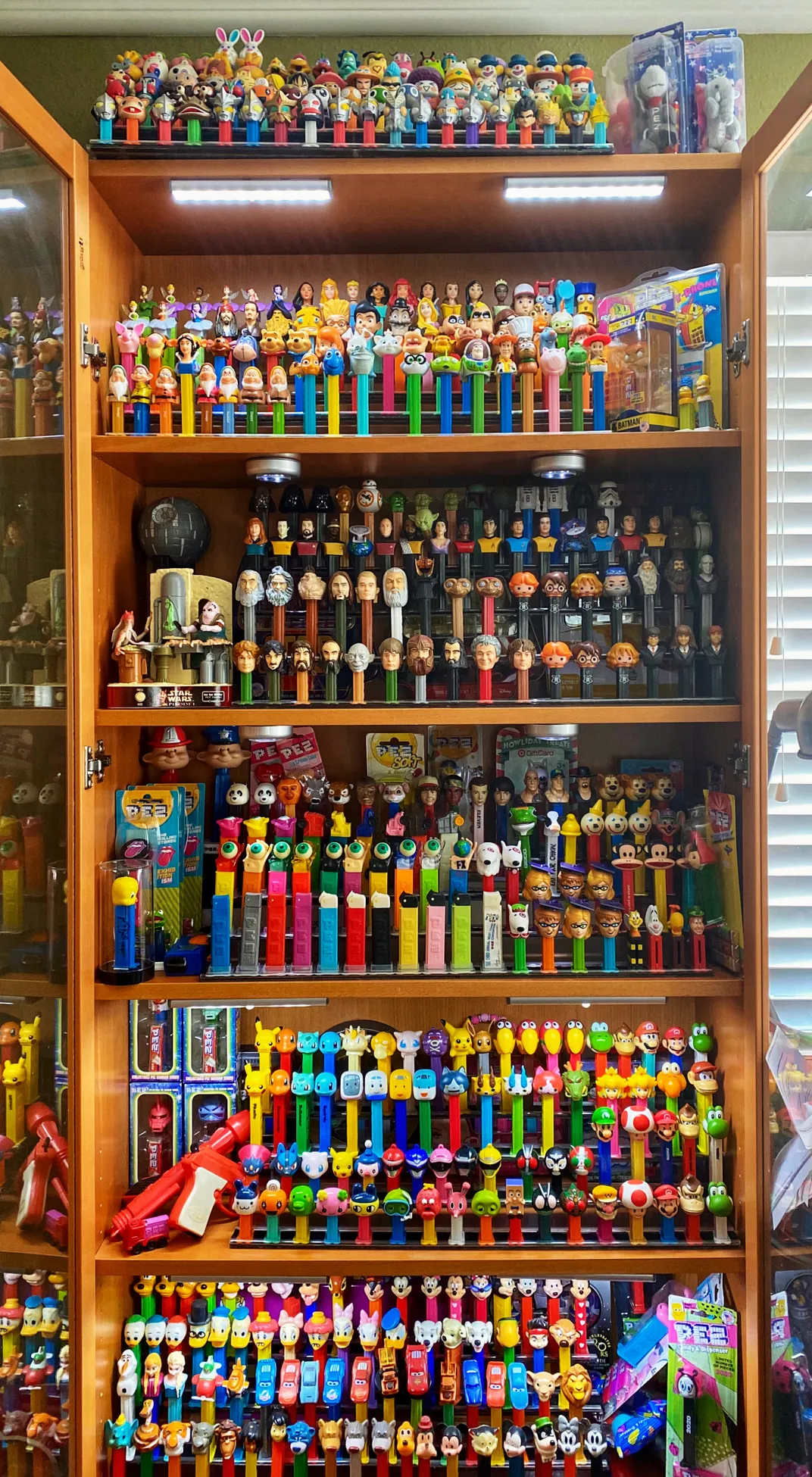
Psychiatrist Shirley Mueller, author of Inside the Head of a Collector: Neuropsychological Forces at Play, is also an internationally known collector and scholar of Chinese export porcelain. She owns at least 200 Chinese tea pots and over 600 total objects in her collection, each of which tells a story and represents a piece of history. When she started collecting, she says the attachment she felt when she obtained a new piece was a shock. “I’m supposed to be scientific,” she says, but collecting isn’t about science; it’s about emotion.
Mueller has spent decades researching the neuropsychology and science of collecting, and she says that during times like this pandemic, “Collecting provides solace and structure, and ways that we can still be productive doing something we can enjoy.” That doesn’t always mean buying a new piece. It can be as simple as researching your pieces or rearranging them, or just sitting and experiencing joy just by looking at them.
“Collecting is also about control,” she says. “We can control our collections. We can’t control Covid.”
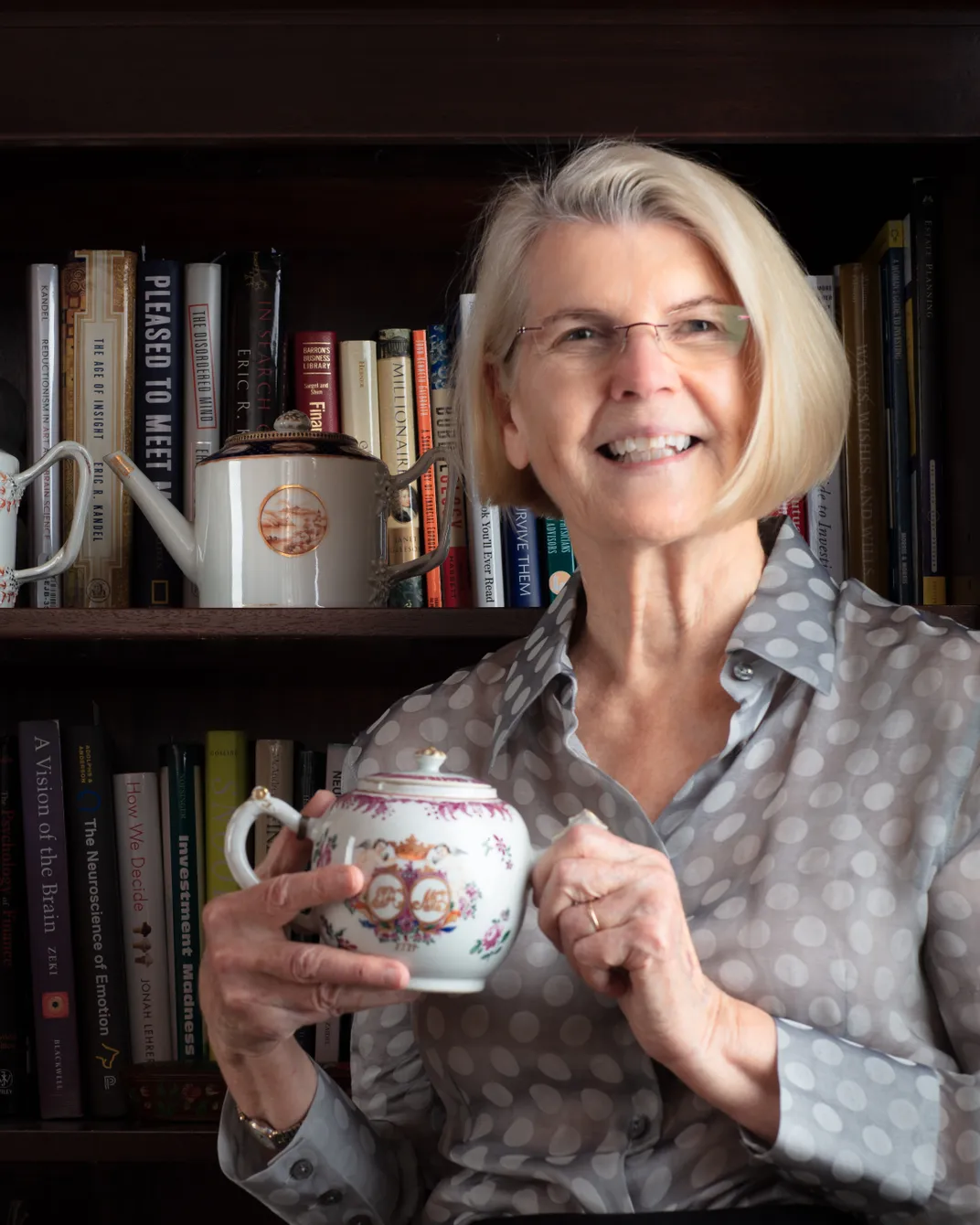
Spending so much time with their collections during the pandemic has also spurred some people to think about—gasp!—parting with a few items, either for financial reasons or because they’ve had plenty of time to rearrange and come to terms with a purge.
Larry Strothe, a Los Angeles-based television producer and co-creator of The Monster Party Podcast, which talks to entertainment industry insiders about science fiction, fantasy, horror and, of course, monsters, admits he was a “strange kid.” He liked to put his toys on a shelf instead of playing with them, so you could say he was born to collect. Like Mueller and Semitsu, he says staying home during the pandemic has given him time to reflect on the robots, the space and monster toys, and the masks he’s been collecting for over 50 years.
Strothe has thought about scaling back during the pandemic, but it’s tough when he sees so many incredible pieces popping up on eBay. He’s not parting with his “pride and joy”—a tin, battery-operated mint condition Godzilla toy from 1970—but he doesn’t feel as much pressure to add to his collection as he has in years past. “I’ve learned to appreciate what I have,” he says.
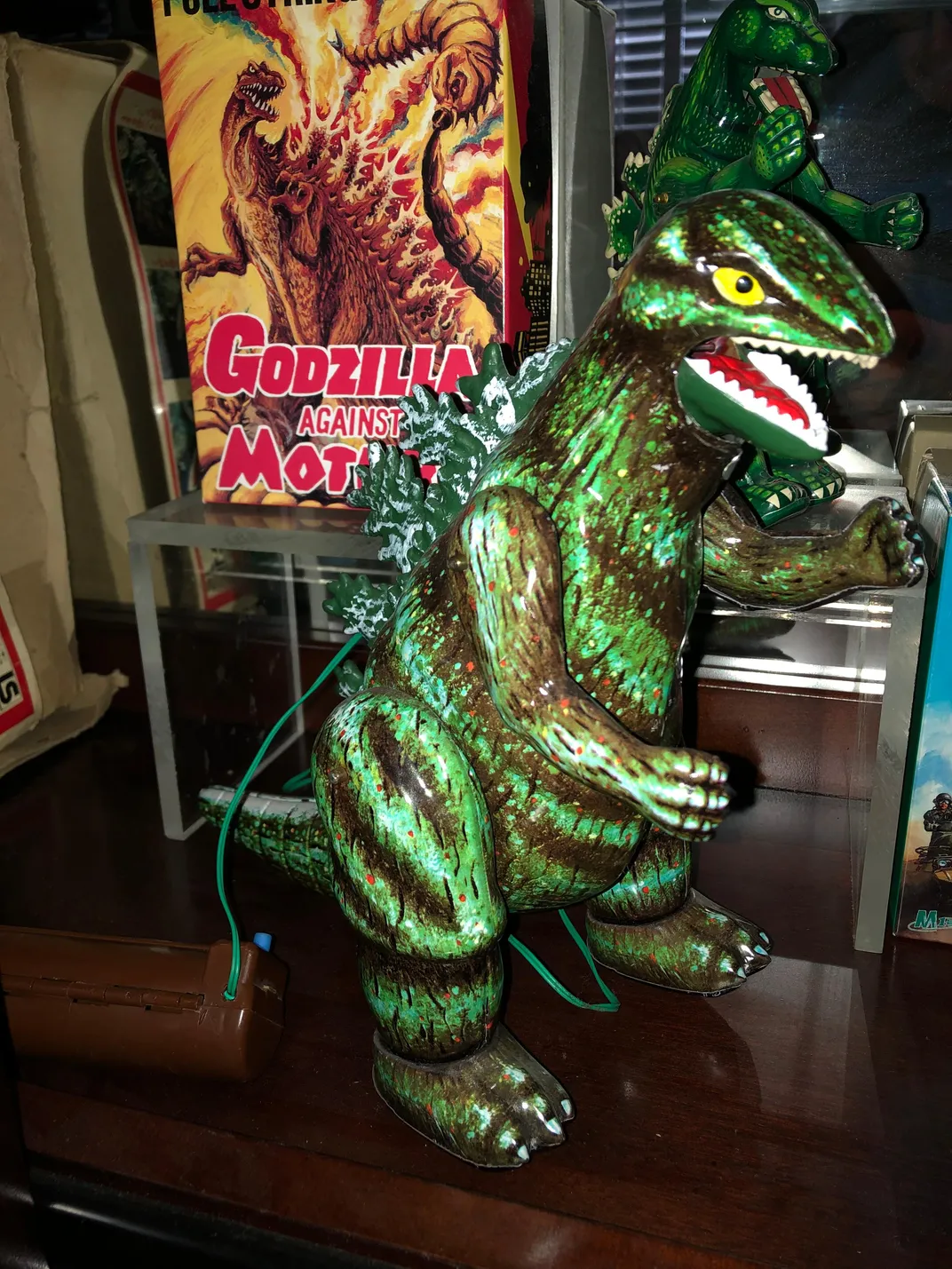
While collectors like Strothe contemplate scaling back (“contemplate” being the operative word), auction houses and online trading sites have been seeing strong growth in 2020. Neal Glazier, a top executive at Invaluable, one of the leading online marketplaces for fine art and collectibles, says that after an initial dip in sales with the onset of Covid, recovery started in May and sales took off by June. Glazier says that from July to September, collectibles grew by 104 percent, and toys and dolls were up 36 percent. 1st Dibs, a self-described Paris flea market online, says games, books, sports memorabilia and maps have surged in popularity in 2020, with games up 35 percent from the year before and maps up 165 percent. “Games have surged in popularity and book orders are up 140 percent since last year,” says Anthony Barzilay Freund, editorial director and director of fine arts at the website.
Heritage Auctions, which handles sales of vintage video games, comic books, antiques, coins, jewels and more, has recorded at least 2.11 million bids in 2020, compared to 1.86 in 2019. People are at home, they’re scrolling to pass the time, and, evidently, they’re springing for items.
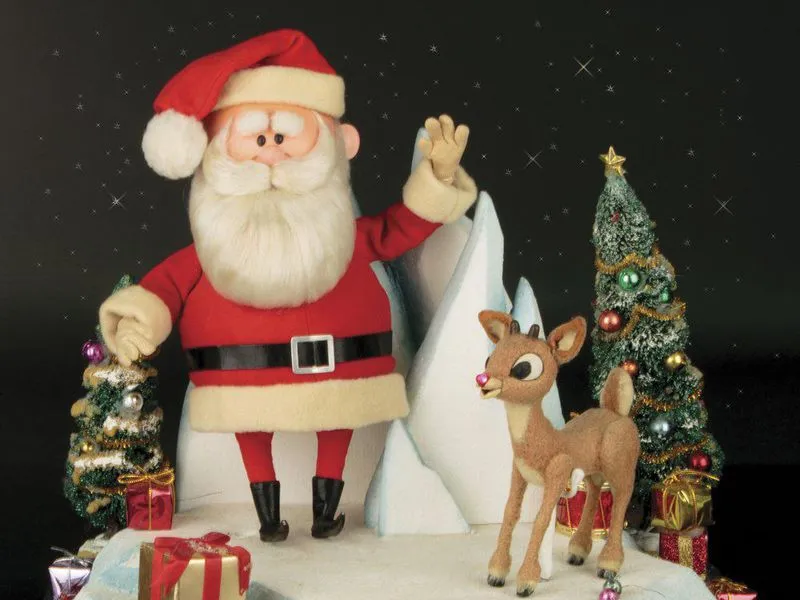
“We’re seeing a conscious shift in nostalgia,” says Joseph Maddalena, CEO of Profiles in History, the auction house that is handling the sale today of puppets from the 1964 stop-motion film Rudolph the Red Nosed-Reindeer that are estimated to be worth $150,000 to $250,000. “In this world of Covid, people are at home, they’re paying attention, they can’t travel or do so many things they used to do so they say ‘I’m not going to put money in the stock market, I’m going to make myself happy and collect.’”
Maddalena grew up in the 1970s, following his antique-dealer parents to flea markets and auctions across the East Coast. He hated tagging along, that is, until he found vendors selling baseball cards and stamps. “I thought, I can collect all of these cool things, so I started collecting with no rhyme or reason.” As he got older, he became more interested in “the selling side,” and he’s been heading up Profiles in History since 1985.
Maddalena says that despite (or maybe because of) the pandemic and stress of 2020, people are spending. His son collects and sells Pokémon items, so he’s been paying attention to how their value has skyrocketed. “A Pokémon Charizard in mint condition that was worth $12,000 in January sold for over $200,000 in October. It’s crazy,” he says.
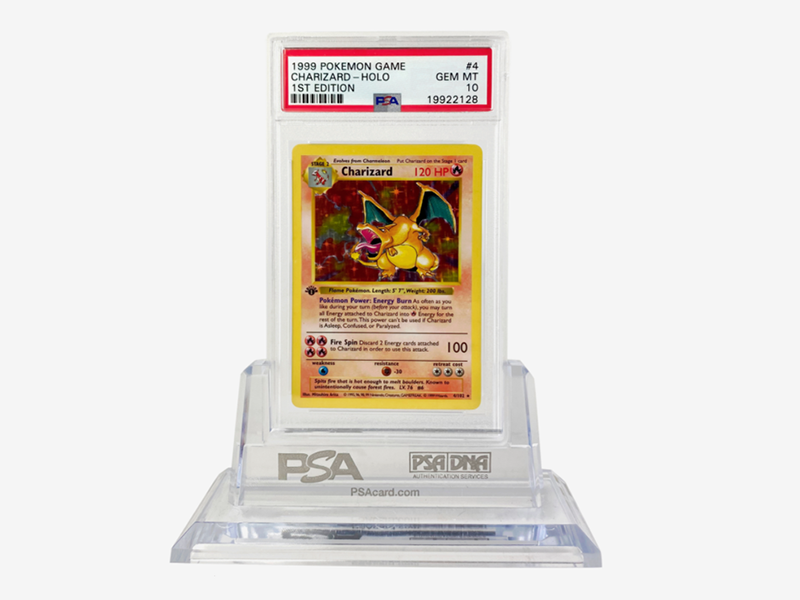
That coveted piece was bought by the rapper Logic, and although purchases of that size aren’t common, the impetus for the buy seems to transcend the cost. Whether it’s a vintage toy for a few hundred bucks or a six-figure Pokémon item, at the end of the day it’s about the joy that nostalgia brings, and the comfort of placing another piece in your collection.
“A blessing and a curse of the current socioeconomic landscape is that people are looking for ways to make money… there are a lot of toys on the open market to be had and they are at much more affordable prices today than they have ever been before,” says Derek Neveu, an English teacher in Orlando, Florida, who collects comic books, Funko Pops and vintage toys. He thinks his collecting might slow down, but he has no plans to stop. “I’ve been collecting things all my life, and much to the chagrin of my wife, I don’t see that stopping anytime soon,” he says.
For others, collecting in 2020 hasn’t been possible.
“Since the pandemic began, my income has come to a complete and indefinite stop,” says Moe Espinoza, a music producer in Los Angeles. He does still scroll through eBay just in case something pops up that he absolutely has to add to his collection of vinyl, VHS tapes, retro gaming consoles, graphic novels and rare toys. He says decluttering and organizing his things has helped ease his 2020 stress, so he started taking photos of his things and posting them on an Instagram account before he boxed them up and put them in storage. Turns out, scrolling through the photos gives him just as much satisfaction as staring at the real thing, plus the lack of clutter is helping him focus on creating music again.
“There is an escapism that comes with [collecting],” says Neil Turitz, a writer in New York City. He started collecting comic books as a preteen, and now his Manhattan apartment is overflowing with thousands of comics. “When I was a kid, the only two things I cared about were baseball and superheroes,” he says. “As an adult, I’ve pretty much just added women and movies.”
Turitz has been collecting more than usual during the pandemic, adding more than 50 Batman comics to his collection, partly because the process has been so reassuring. “The beginning of the pandemic was hard for me,” he says. “The process of expanding my collection was a great comfort. It’s the little things that get us through, ultimately.”
Sometimes those little things just happen to be a ceramic pig or a R2-D2 Pez dispenser.
/https://tf-cmsv2-smithsonianmag-media.s3.amazonaws.com/accounts/headshot/Dina-Gachman-bio-photo.jpg)
/https://tf-cmsv2-smithsonianmag-media.s3.amazonaws.com/accounts/headshot/Dina-Gachman-bio-photo.jpg)